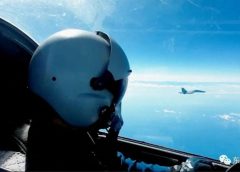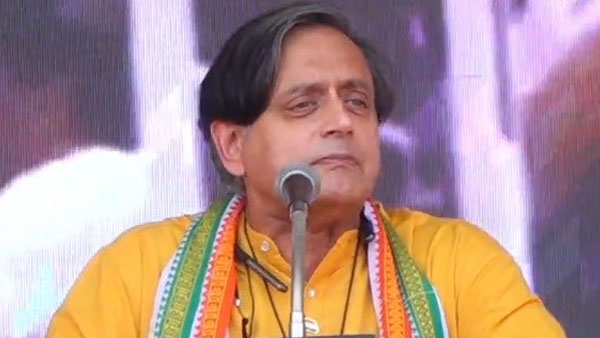
Taiwan: Beijing’s growing belligerence is a warning
[ad_1]
As Chinese missiles and bombers crisscross the Taiwan Straits, the Ukraine conflict seems to have taken a backseat. The world is riveted by what is happening in the waters surrounding Taiwan and is trying to comprehend the larger implications of Nancy Pelosi’s visit, as well as its aftermath.
Americans are debating their Taiwan and China policies even as the Indo-Pacific nations are looking askance at the rapidly deteriorating security environment. The charade of America’s Taiwan policy has been exposed and the inability of other major powers to manage China is quite evident. Beijing’s belligerence is reminiscent of revisionist powers of the past that were intent on challenging the status quo by force if need be without any notion of a political compromise.
The only actor who emerges from this episode with its dignity left intact is Taiwan. Even as many pundits and leaders have bemoaned the fact that Pelosi visited Taiwan, thereby “provoking” Chinese reaction, it has been left to Taipei to remind them that while China’s threat to Taiwan is “more serious than ever,” the island will stand firm to protect its freedom and democracy — including by welcoming those who support it. Even as many among us give unsolicited advice to Taiwan as to what it should or should not do, it is the ever so resilient spirit of Taiwan that needs to be saluted. As Taiwan’s foreign minister Joseph Wu made it clear, “(China) cannot dictate to Taiwan that we should not welcome anyone who likes to come and show support for Taiwan.”
Pelosi became the first sitting United States (US) House of Representatives speaker and the highest ranking American official to visit Taiwan in 25 years, thereby frontally challenging the Chinese Communist Party (CCP), which views Taiwan as its territory despite never having controlled it. For Xi Jinping, this was personal — given Pelosi’s anti-China history — and after Beijing publicly demanded that this visit should not go ahead, there was hardly any option but to escalate.
And so, the pressure on Taiwan has been ramped up by imposing economic sanctions, launching missiles over the island and military drills that simulated an attack on Taiwan and its forces. So after days of live-fire exercises, anti-submarine attacks, and sea raid rehearsals, the People’s Liberation Army has promised to keep conducting “regular combat readiness patrols” in the Taiwan Strait.
There has been a remarkable shift from Beijing’s policy of trying to wean Taiwan away through engagement, as economic ties boomed and the mainland emerged as an attractive destination for young Taiwanese. But Xi is in a hurry. He has no time for engagement if that means he does not get the historical legacy of reunification under his name.
In his attempt to carve out his name in the annals of Chinese history alongside Mao Zedong and Deng Xiaoping, he has been aggressive and coercive in his outreach to Taiwan. The result is counterproductive, as recent polls suggest that a large majority of the Taiwanese people now oppose any sort of unification with China. The fate of Hong Kong also stands as a testimony to the follies of relying on the CCP’s assurances.
The much-vaunted China-Taiwan-US status quo was based on flimsy foundations which are now crumbling under the weight of the changing balance of power in the Indo-Pacific. Taiwan has been a self-governing island for decades and China’s claims that it is part of its territory do nothing to alter that reality. For the US, the unsustainability of its One China policy was also a matter of time as China emerges as the pre-eminent challenger to the American-led global order. And for much of the rest of the world, this odd belief that these multiple pretences would allow normality to continue to prevail in a highly abnormal strategic environment has begun to crumble and crumble rapidly.
China is keen to dismantle this status quo much like in other spheres and in the typical fashion of a revisionist power. Xi’s desire as he enters his historic fourth term in office in a few months to unify his motherland and restore its lost glory is potent enough to demolish old assumptions. This Pelosi-induced crisis has given the Chinese military an opportunity to launch another round of psychological warfare and demonstrate to the world that the China of 2022 is not the China of 1996. Yet, Taiwan is not Ukraine and Beijing is well aware of the challenges it will face if it launched a military strike. Militarily subduing a technologically sophisticated island like Taiwan — which has repeatedly shown a determination to stand up against Chinese bullying — will be a challenge that the CCP will have to prepare itself for. But Chinese actions vis-à-vis Taiwan are not simply for the Taiwanese. They are aimed at a much broader audience from East and Southeast Asia to the Himalayas and the West.
The message to countries in East and Southeast Asia, as well as India, is clear: Be ready for Beijing’s military intimidation if its unilateral alterations in the status quo are resisted. For the US, these are the warning shots of a global challenger that for all its efforts over the last several decades Washington has not been able to transform. By suspending military dialogue with the US and shunning diplomatic engagement and letting the missiles do the talking, Beijing is reminding Washington that a new era of global power politics has begun.
New Delhi should begin to grapple with the big shifts in the global order on an urgent basis. Puerile talk of non-alignment in this era of sharpening US-China contestation and growing belligerence from Beijing won’t cut much ice.
Harsh V Pant is vice-president, Observer Research Foundation, and professor at King’s College London
The view expressed are personal
[ad_2]
Source link


